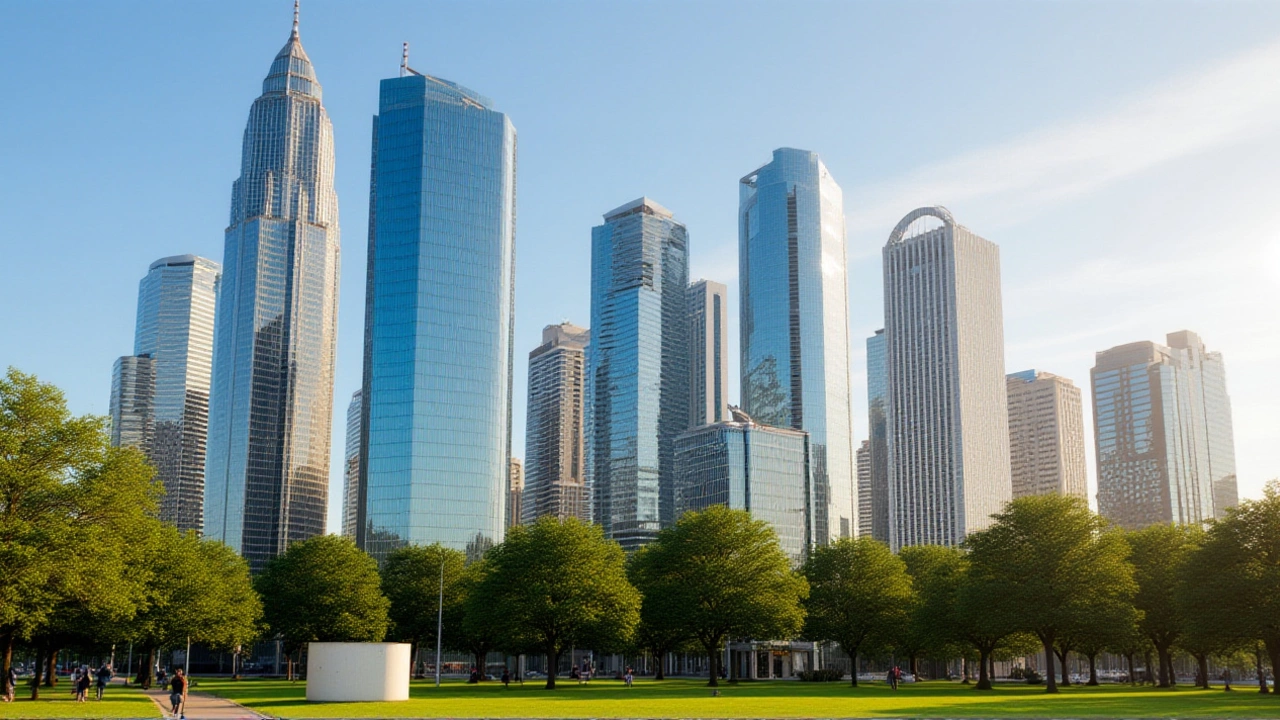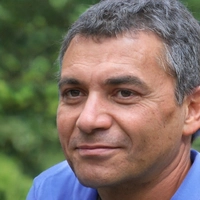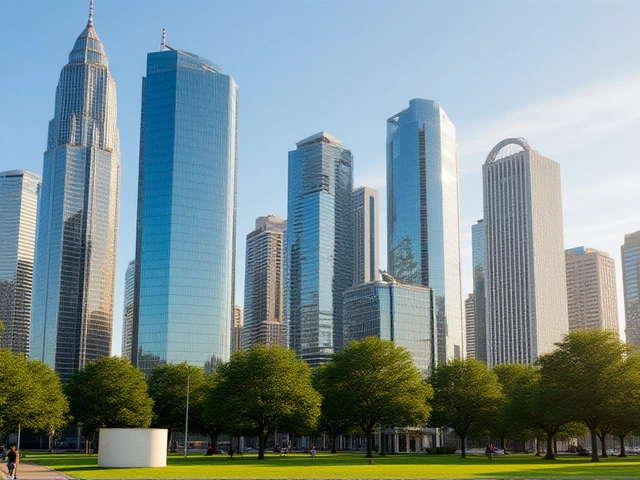When Abdullah Boulad suffered a heart attack at 38, he wasn’t running from a deadline—he was running from the weight of his own success. The former venture capitalist had climbed the corporate ladder in Dubai, chasing deals, dinners, and dominance. But beneath the tailored suits and private jet schedules, his body was screaming. That moment—his heart giving out—didn’t end his career. It rewired it. Today, Boulad runs The Balance Luxury Rehab Clinic, a global network of elite recovery centers in Zurich, London, Mallorca, and Marbella, where CEOs, royals, and ultra-high-net-worth individuals come to unlearn the habits that nearly killed them.
The Silent Crisis Among the Elite
On Monday, November 10, 2025, Arabian Business dropped Season 7, Episode 5 of its AB Majlis podcast, featuring host Nicole Abigael in a raw, 24-minute conversation with Boulad. The episode doesn’t just name the problem—it pulls back the velvet curtain on what’s happening inside the penthouses and boardrooms of the Middle East. "I haven’t seen any person really without a mental health issue," Boulad says. And he’s not exaggerating. His clinic’s client roster reads like a who’s who of regional power: family business heirs, tech founders, royal advisors, and private equity titans—all quietly drowning in silence.
What makes this crisis uniquely Middle Eastern? It’s not just long hours or investor pressure. It’s legacy. "We compare ourselves with our peers and also with our parents or grandparents," Boulad explains. "If you inherit a business, you’re not trying to grow it—you’re trying not to lose it. And losing it feels like betrayal."
That pressure isn’t theoretical. According to PwC Middle East’s 2025 CEO survey, nearly half of regional leaders expect to overhaul their business models in the next three years just to survive. Over 40% admit they’re too exhausted to manage the change—and that’s before accounting for sleepless nights, prescription dependency, or the loneliness that comes with never being able to say "I’m struggling."
Why Wealth Doesn’t Protect You
Here’s the twist: money doesn’t heal—it amplifies. The richer you are, the more invisible your pain becomes. No one wants to hear a billionaire complain. No one believes a royal could be depressed. So they bottle it. And then they self-medicate. Boulad says benzodiazepines and stimulants are the most common substances he sees in recovery. Not cocaine. Not alcohol. Prescription pills—doled out by doctors who don’t ask the right questions.
Deloitte’s 2024 Well-Being at Work survey found that 71% of global C-suite executives would quit for a role that prioritized mental health. DDI’s 2025 Global Leadership Forecast revealed that one in six leaders is already burned out. But in the Gulf, the numbers might be worse. "In the West, you can take a sabbatical," Boulad notes. "Here, taking time off looks like weakness. Like you’re handing the keys to your cousin."
The Isolation of Power
At the top, trust evaporates. Boulad describes how executives surround themselves with yes-men, assistants who know too much, and advisors who are paid to flatter. Genuine friendships? Rare. Romantic relationships? Often transactional. "One client told me he hasn’t had a real conversation with his wife in three years," Boulad says. "They talk about property values and school fees. Not feelings. Not fears."
This isolation breeds addiction—not just to drugs, but to control. To productivity. To the next deal. To the next Instagram post that says "hustle harder." And when the body finally breaks—heart attack, panic attack, collapse—it’s not seen as a signal. It’s seen as an inconvenience.
What Can Be Done?
Boulad’s message isn’t doom. It’s a roadmap. He shares three simple, non-negotiable steps anyone can take—even if you’re not a CEO:
- Stop the comparison. Stop scrolling through your peer’s yacht photos. Their life isn’t your benchmark. Your legacy isn’t measured in square footage or quarterly earnings.
- Find one person you can be real with. Not your therapist. Not your coach. One friend. One sibling. One colleague. Someone who doesn’t need to fix you—just listen.
- Protect your sleep like it’s your last asset. Because it is. No emails after 9 p.m. No calls on weekends. No "just one more" meeting.
He also urges families to start conversations early. "Don’t wait until the heart attack," he says. "Talk about mental health the way you talk about taxes or succession plans. It’s just as important."
What’s Next?
Arabian Business plans to continue the conversation weekly through AB Majlis podcast, with upcoming episodes exploring therapy access in Saudi Arabia, the role of religion in mental health stigma, and how female executives in the GCC navigate burnout differently.
Meanwhile, regional institutions are beginning to take notice. The Dubai Health Authority recently launched a pilot program offering confidential mental health screenings for corporate leaders. But Boulad warns: "Policy won’t change culture. People will."
Why This Matters
This isn’t just about CEOs. It’s about the economy. When leaders burn out, companies stall. Innovation dies. Talent flees. And families fracture. The Middle East’s future depends on its leaders being whole—not just wealthy. Boulad’s story isn’t unique. It’s a mirror. And if you’re reading this, you might be one of the ones who needs to look.
Frequently Asked Questions
Why are Middle Eastern CEOs more prone to burnout than their Western counterparts?
Middle Eastern executives face unique pressures tied to legacy and family reputation. Unlike Western counterparts who often chase growth, many inherit businesses and feel intense pressure to preserve wealth, not expand it. Cultural stigma around mental health and the expectation to never show weakness amplify isolation, making burnout more likely and less likely to be addressed.
What role does inherited wealth play in mental health struggles?
Inherited wealth creates a burden of expectation. Individuals feel they must match or exceed their parents’ achievements, often without the same drive or passion. This leads to identity crises, guilt, and perfectionism. Boulad’s clients frequently describe feeling like "caretakers of a legacy," not owners of their own lives—a psychological trap that fuels anxiety and depression.
How common are prescription drug addictions among high-net-worth individuals in the Middle East?
Extremely common. According to Boulad, benzodiazepines and stimulants are the top substances used by his clients—often prescribed by doctors who don’t ask about emotional stress. The stigma around addiction means many self-medicate silently. One client admitted to taking 12 pills a day for five years before seeking help. The medical system rarely screens for psychological causes.
What practical steps can someone take to avoid burnout without quitting their job?
Boulad recommends three non-negotiables: stop comparing yourself to others, find one person you can be authentically vulnerable with, and protect your sleep like a sacred asset. He also advises scheduling "no-work Sundays," turning off notifications after 9 p.m., and hiring a life coach—not just a business advisor. Small, consistent changes prevent collapse.
Is the AB Majlis podcast changing attitudes toward mental health in the region?
Yes. Since the episode aired, The Balance Clinic has seen a 37% increase in inquiries from the Gulf region, particularly from family-owned businesses. Public figures in Dubai and Riyadh have begun speaking openly about therapy. While stigma persists, the podcast has cracked open a conversation that was previously locked behind closed doors—and that’s the first step to real change.
Where can I listen to the full AB Majlis episode?
The full 24-minute episode is available on Apple Podcasts, Spotify, RSS.com, and Google Podcasts. Released every Monday by Arabian Business, Season 7 focuses on leadership, well-being, and the hidden costs of success in the Middle East. Episode 5, featuring Abdullah Boulad, is the most downloaded to date.




